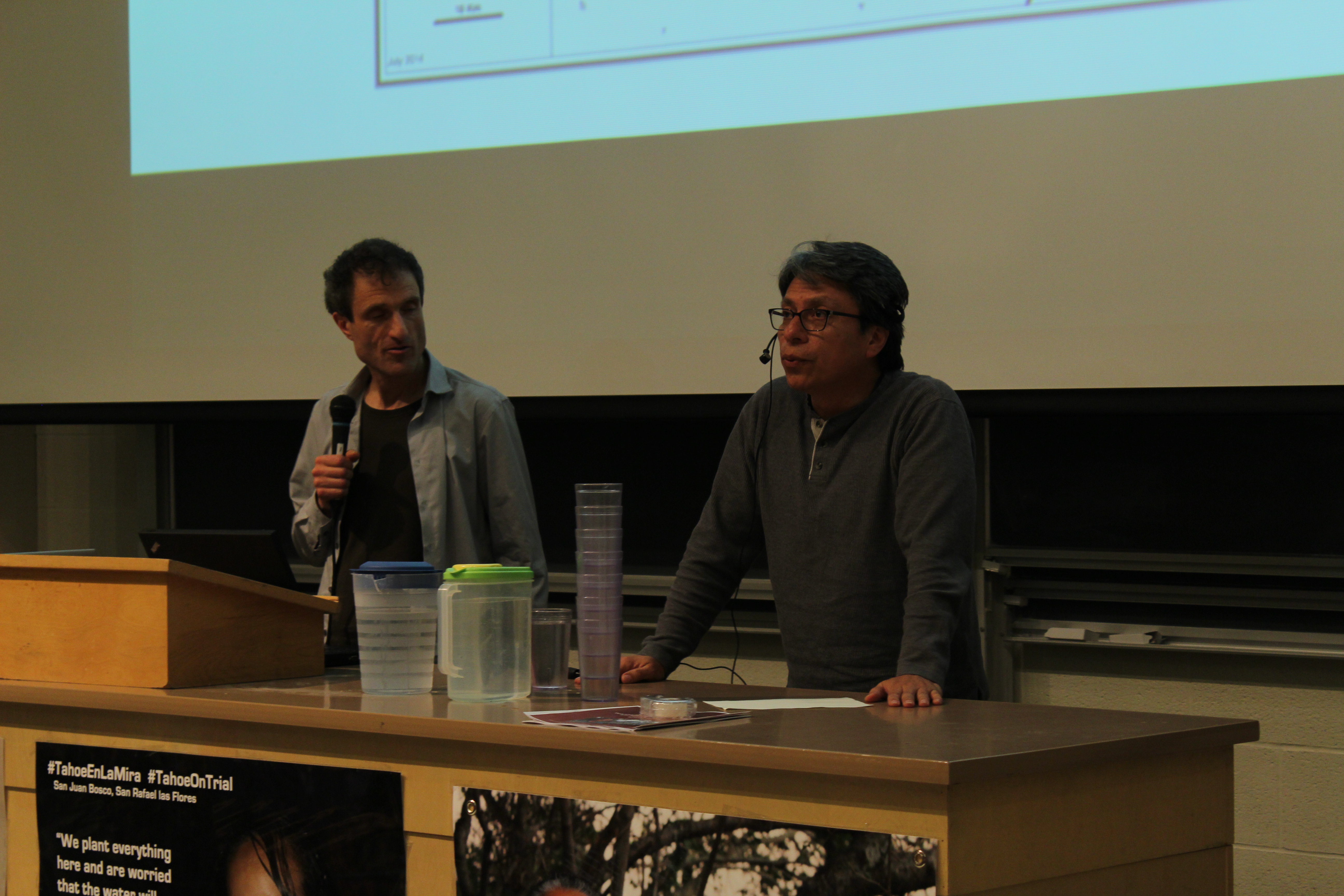Activists say mining companies are using “divide and conquer” tactics
Guatemalan investigative journalist Luis Solano gave a presentation at McGill University on Thursday concerning the ways mining companies use militarized security strategies to silence resistance. At the talk, organized by the McGill Research Group Investigating Canadian Mining in Latin America, Solano spoke about Tahoe Resources, a Canadian-based mining company, and how their tactics have caused violence and conflict.

Solano, whose words were translated into English, said mining in Guatemala began to take off in the mid-1990s after the end of the country’s civil war. He said that in order to create incentives for companies to develop in Guatemala, the government—along with mining companies looking to operate in Guatemala—reformed the country’s mining act and reduced royalties from six per cent to one per cent. Canadian companies were quick to apply for mining licenses from the government and then find companies who could carry out the work on the ground.
“In 2007 it all moved into the hands of Goldcorp … it is one of the companies that is most implicated in human rights violations in our country,” said Solano. “2010 saw the founding of a company called Tahoe Resources with shareholders and capital from Goldcorp.”
Tahoe Resources’ Escobal Mine project in southeastern Guatemala is around 1,300 sq. km—twice as big as Toronto—making it the third-largest silver mine in the world. In 2013, Solano said the communities within the boundaries of the concessions handed out to companies decided to start holding community consultations.
“About 90 to 95 per cent of the population … has said no, we don’t want these projects,” he said. “But the government and the mining company were never willing to accept these results.”
He said there is fear in the communities that the land and water will be contaminated through the mining process. The area around the Escobal Mine uses farming and dairy production as its largest forms of economic activity so contamination could destroy their only way of making a living.
Solano said despite the peaceful nature of resistance to these mining projects, the government and the mining company started to consider it dangerous resistance.
“Because it’s resistance that could actually put a stop to the mining project, there have been moves made to characterize it as terrorist resistance,” he said.
The government and the company have responded with both public and private security agencies, Solano said. “This has led to a series of military operations that is designed to put an end to this peaceful resistance. What they want to do is infiltrate the resistance movement, charge certain people with crimes, kidnap people, slandering leaders, illegal detention and also attempting to divide the communities to better divide them and do away with this resistance.”
Solano said these tactics were designed by International Security and Defense Management (ISDN), a U.S. Army defense contractor with a track record in intelligence and counterinsurgency.
Solando said there is a co-responsibility between governments, armed forces and transnational companies in the repression of human rights in Guatemala.
“All of these actors are also responsible for the divisions created among the people, and what’s happening with Tahoe Resources is a pattern you see worldwide,” Solando said.



